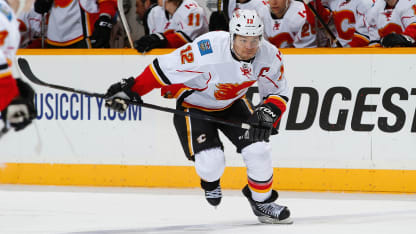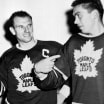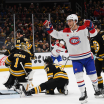He earned another gold medal and hero status at the 2010 Vancouver Olympics, assisting on Sidney Crosby's overtime goal that gave Canada a 3-2 win against the United States in the gold-medal game.
Iginla reflected on his career, on NHL players speaking up on social justice issues, and on the up-and-coming generation of Black players in an interview with NHL.com:
You've said that you didn't experience racist incidents or taunts in professional hockey that some of your predecessors did. But you did experience a bit of it growing up. What was that like?
"As far as bad racial experiences growing up in minor hockey, I had a couple and a couple is too many, but I had very supportive teammates. The question I heard most (growing up) was most boys want to play in the NHL, but when I said it other kids would say, 'C'mon, what are the chances? There's not any Black players in the NHL or there are not very many.' Fortunately, I was able to have some answers for them. I don't think they meant it meanly, but it didn't feel good. But it was nice to have those answers."
You achieved a lot of firsts in your career. How does that make you feel?
"When I heard that I was the first Black man to win a gold medal at the Winter Olympics and be on that team, that was really cool. It was an honor to be a captain in the NHL and to be the second (Chicago Blackhawks forward Dirk Graham became the first Black captain in the NHL in 1989). The scoring one I thought it was really cool. When you're going through it, it's special. I've met … kids over the years who've said they followed my career and maybe I helped inspire them. That's a huge honor. I know that there are many players that they follow, but to be one guy, and I can be like Grant Fuhr was before me and Vilgrain and McKegney, it meant a lot and it was special."
Jan. 18 marked the 63rd anniversary of Willie O'Ree becoming the NHL's first Black player. What did his accomplishment mean to you?
"I have so much respect for Willie O'Ree and what he accomplished, what he did for Black players and minorities in the game of hockey and how challenging a time he would have had. To break in, Original Six, at a time where it was hard with racism and being the first. There were barriers there. For him to be able to do that, to have that determination, and personality and perseverance to go through some of the challenges and to be alone, to be the first, to be the only one out there that you feel looks like you. I got to look and have other players and say why I believed it was possible because there were other Black players in the NHL. He didn't have that."


















